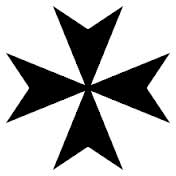For a long time, the generally accepted figure was 400,000 which always carried the qualifier: "if descendants are included." Then in 1986, for the first time, the Australian Census asked a question about peoples ancestries. Thus, for the first time in Australia's 75 years of national census collecting, it was possible to accurately estimate Maltese ethnic strength.
Prior to the 1986 Census, the only ethnic data available related to birthplaces and languages other than English spoken at home. The latter was a useful guide to ethnic strength but, as the 1986 question on ancestries revealed, there are many more Australians who regard themselves as being of Maltese descent than who actually speak the Maltese language. The 1986 Census found that the figure of 400,000 was way off, a gross exaggeration. Some people in the community accepted the 400,000 figure. Why was that? Basically, it was accepted it because it came from what seemed to be reputable sources. The Australian Department of Immigration had established a History Unit in the early 1970s and, in 1974, the History Unit released a series of estimates of numerical strength of several ethnic communities. The estimate for the Maltese was 400,000. (click here to read more).





